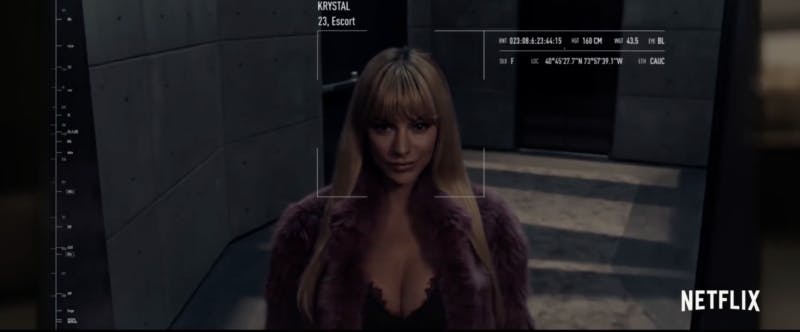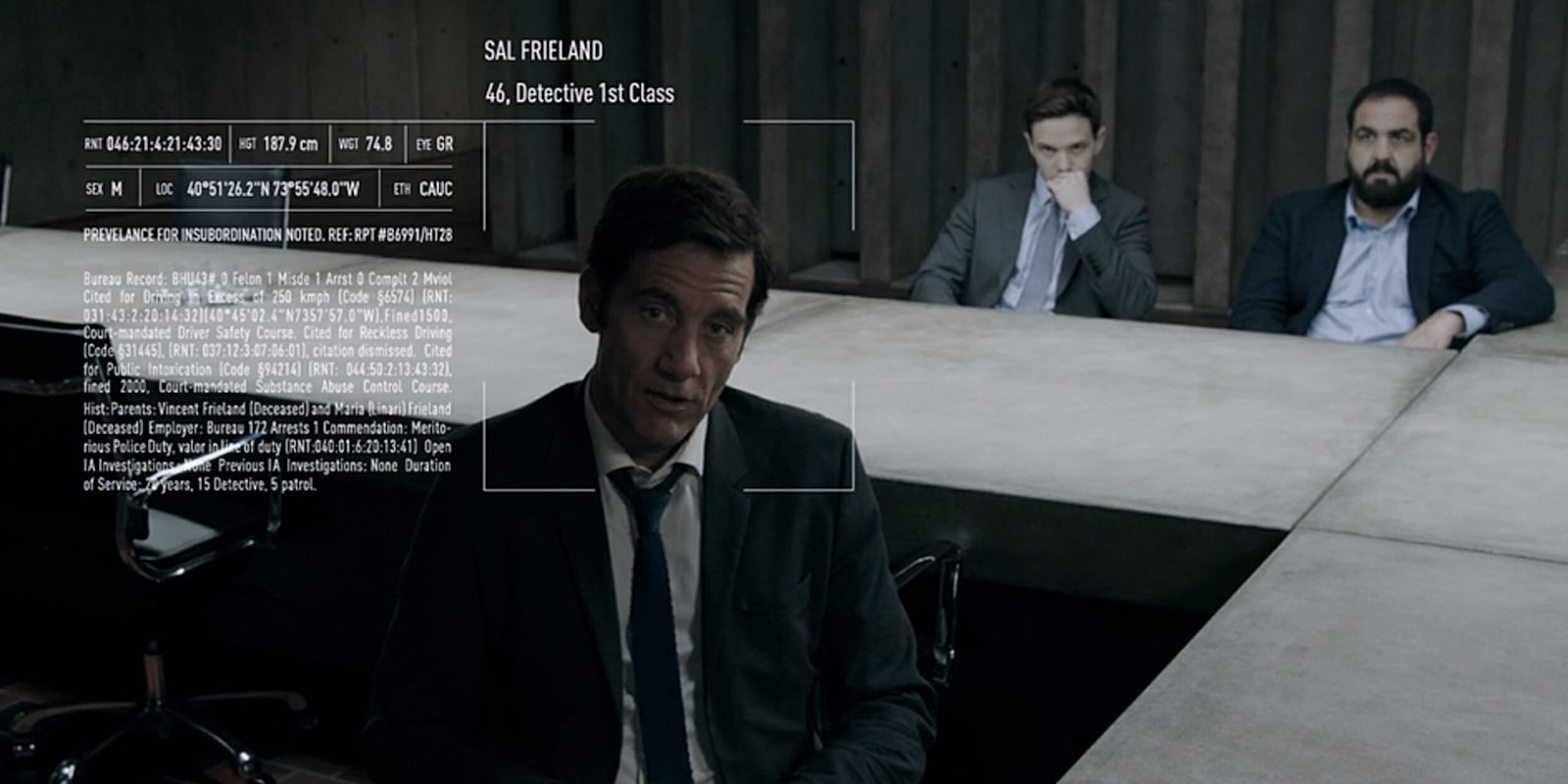Netflix’s new techno-thriller Anon is essentially an extended Black Mirror episode. Unfortunately, it plays like one of the more mediocre offerings from that series.
Set in a future where everything is recorded through your eyes and human beings have exact footage to rely on rather than pesky memories, the film stars Clive Owen as Sal Friedland, a detective in an unnamed metropolis which might as well be anywhere and nowhere.

As you might guess, being a detective in this world doesn’t offer a lot of excitement, and Sal spends most of his time contrasting people’s recollection of events with footage of what actually happened. Cases get solved quickly, except those involving expert hackers who can manipulate footage, replacing and fabricating the video records everyone carries around with them. When Sal starts investigating one such hacker who may or may not be responsible for multiple murders, he’s shocked to learn that she appears to have deleted all of her own records, making her nearly untraceable. Played by Amanda Seyfried, this woman is known to Sal only as “ANON.”
That might lead to flashbacks of the Black Mirror episode “The Entire History of You,” in which a jealous husband starts pouring over every detail of his wife’s interactions with an ex. Black Mirror has returned to the idea of a world where everything is recorded more than once (“Crocodile” is another example,) but what makes “The Entire History of You” so memorable is not the technology inherent to the premise itself, but it’s the psychological effects this technology might have on humans. As all the best episodes of the show do, it reminds us that technology alone is not good or evil. It’s merely a mirror, reflecting whatever elements of humanity we choose to show it.

All of which is a roundabout way of saying that Anon doesn’t do this nearly enough. The movie ups the ante, with POV shots in nearly every scene, revealing that not only memories are accessible through this technology but any other data and information you would ever need. There isn’t any time spent on how this tech was implemented or how it works, but that’s not the problem. The problem is that Anon is so focused on the cleverness of its concept, it fails to create an interesting world or characters around it.
Sal is given a prototypical dead child backstory, and there’s a hard-boiled element to his character which feels akin to the sci-fi noir pioneered in Blade Runner. Owen, though a talented actor, is mostly wasted in the role, and Sal ends up a cliched version of better protagonists who came before him. Seyfried, another gifted performer, has less to do still. The movie credits her simply as “The Girl,” and she never gets to be anything other than a cipher for the ideas and themes writer/director Andrew Niccol is playing with.
Niccol has explored similarly high concept territory, occasionally with much success, as in 1998’s The Truman Show (that film also had the great Peter Weir directing, which helps.) Other times, his trippy concepts have been less successful, such as 2011’s In Time, which took the idea of, “what if time really was money?” and blew it up to 110 minutes (if ever there was a Netflix movie before there was such a thing, this was it.)
“‘I can’t believe my eyes’ is not an expression,” says Owen in one of Anon’s silliest moments. Yet the weird thing is, Niccol doesn’t even fully explore this element of his premise. He’s so obsessed with grand themes of privacy, security, and memory, he often forgets to push the concept as far as it can go. Not that these themes aren’t worth exploring, but since Niccol is more focused on concept than character anyway, one wishes he had milked the concept for all it’s worth.
The best sequence of the movie, where ANON has hacked Sal’s eyes, finds him tripping out, unsure of the reality he’s seeing in front of him. A shot where his apartment fills with rats, for instance, is truly horrifying.

Besides all the POV technology, Anon has an otherworldly digital look, comprised of greys that make everything look a shade off of reality. Visually, it’s somewhere between The Matrix and a low budget David Fincher knockoff. There’s also a bunch of needless titillation and nudity in this movie, and for some reason, there are a bunch of details in the universe which almost should be explained but go unmentioned. For example: Why is it OK for Owen to smoke everywhere? Why are there characters wearing fedoras? Is this a version of the future which fetishizes the past? Or does Niccol just think all this stuff is cool?
If you can get past a lot of the pseudo-intellectual jargon in the middle and some ham-fisted dialog throughout (see: “How the fuck do we stop this bitch?”), Anon’s premise is enough to keep viewers watching. Niccol, at the very least, knows how to draw an audience in with a high concept, and to his credit, the ending has some exciting beats, despite a limp twist. But like most Netflix movies, Anon seems destined to live on in the platform’s memory, despite being instantly forgotten by those who watch it.
Still not sure what to watch on Netflix? Here are our guides for the absolute best movies on Netflix, must-see Netflix original series and movies, and the comedy specials guaranteed to make you laugh.


